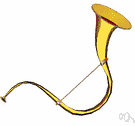flue
Also found in: Thesaurus, Medical, Acronyms, Encyclopedia, Wikipedia.
Related to flue: influenza, chimney flue
flue
conduit for smoke, as in a fireplace: Be sure to open the flue before lighting the fire.
Abused, Confused, & Misused Words by Mary Embree Copyright © 2007, 2013 by Mary Embree
flue 1
(flo͞o)n.
1. A pipe, tube, or channel for conveying hot air, gas, steam, or smoke, as from a furnace or fireplace to a chimney.
2. Music
a. An organ pipe sounded by means of a current of air striking a lip in the side of the pipe and causing the air within to vibrate. Also called labial.
b. The lipped opening in such a pipe.
[Origin unknown.]
flue 2
(flo͞o)n.
A fishing net.
American Heritage® Dictionary of the English Language, Fifth Edition. Copyright © 2016 by Houghton Mifflin Harcourt Publishing Company. Published by Houghton Mifflin Harcourt Publishing Company. All rights reserved.
flue
(fluː)n
1. (Building) a shaft, tube, or pipe, esp as used in a chimney, to carry off smoke, gas, etc
2. (Instruments) music the passage in an organ pipe or flute within which a vibrating air column is set up. See also flue pipe
[C16: of unknown origin]
flue
(fluː)n
loose fluffy matter; down
[C16: from Flemish vluwe, from Old French velu shaggy]
flue
(fluː) orflew
n
(Fishing) a type of fishing net
[Middle English, from Middle Dutch vlūwe]
flue
(fluː) flued adj
Collins English Dictionary – Complete and Unabridged, 12th Edition 2014 © HarperCollins Publishers 1991, 1994, 1998, 2000, 2003, 2006, 2007, 2009, 2011, 2014
flue
(flu)n.
1. a passage or duct for smoke in a chimney.
2. any duct or passage for air, gas, or the like.
3. a tube, esp. a large one, in a fire-tube boiler.
4. a narrow slit in the upper end of an organ pipe through which the air current is directed.
[1555–65; earlier flew, perhaps representing Old English flēwsa a flowing, the form flews being taken as pl.]
Random House Kernerman Webster's College Dictionary, © 2010 K Dictionaries Ltd. Copyright 2005, 1997, 1991 by Random House, Inc. All rights reserved.
ThesaurusAntonymsRelated WordsSynonymsLegend:
Switch to new thesaurus
| Noun | 1. | flue - flat bladelike projection on the arm of an anchor anchor, ground tackle - a mechanical device that prevents a vessel from moving projection - any structure that branches out from a central support |
| 2. |  flue - organ pipe whose tone is produced by air passing across the sharp edge of a fissure or lip flue - organ pipe whose tone is produced by air passing across the sharp edge of a fissure or lip | |
| 3. | flue - a conduit to carry off smoke chimney - a vertical flue that provides a path through which smoke from a fire is carried away through the wall or roof of a building chimneystack - the part of the chimney that is above the roof; usually has several flues conduit - a passage (a pipe or tunnel) through which water or electric wires can pass; "the computers were connected through a system of conduits" lamp chimney, chimney - a glass flue surrounding the wick of an oil lamp |
Based on WordNet 3.0, Farlex clipart collection. © 2003-2012 Princeton University, Farlex Inc.
flue
noun chimney, channel, passage, shaft, vent, conduit, duct cooking smells are vented through the flue
Collins Thesaurus of the English Language – Complete and Unabridged 2nd Edition. 2002 © HarperCollins Publishers 1995, 2002
Translations
Collins Spanish Dictionary - Complete and Unabridged 8th Edition 2005 © William Collins Sons & Co. Ltd. 1971, 1988 © HarperCollins Publishers 1992, 1993, 1996, 1997, 2000, 2003, 2005
Collins English/French Electronic Resource. © HarperCollins Publishers 2005
flue
n → Rauchfang m, → Rauchabzug m; (Mus: of organ, = pipe) → Labialpfeife f; (= opening) → Kernspalt m; flue brush → Stoßbesen m
Collins German Dictionary – Complete and Unabridged 7th Edition 2005. © William Collins Sons & Co. Ltd. 1980 © HarperCollins Publishers 1991, 1997, 1999, 2004, 2005, 2007
Collins Italian Dictionary 1st Edition © HarperCollins Publishers 1995